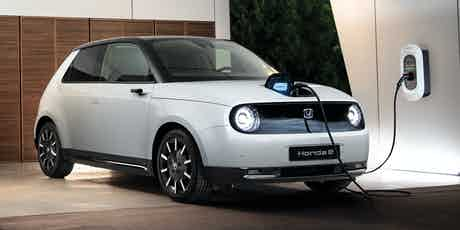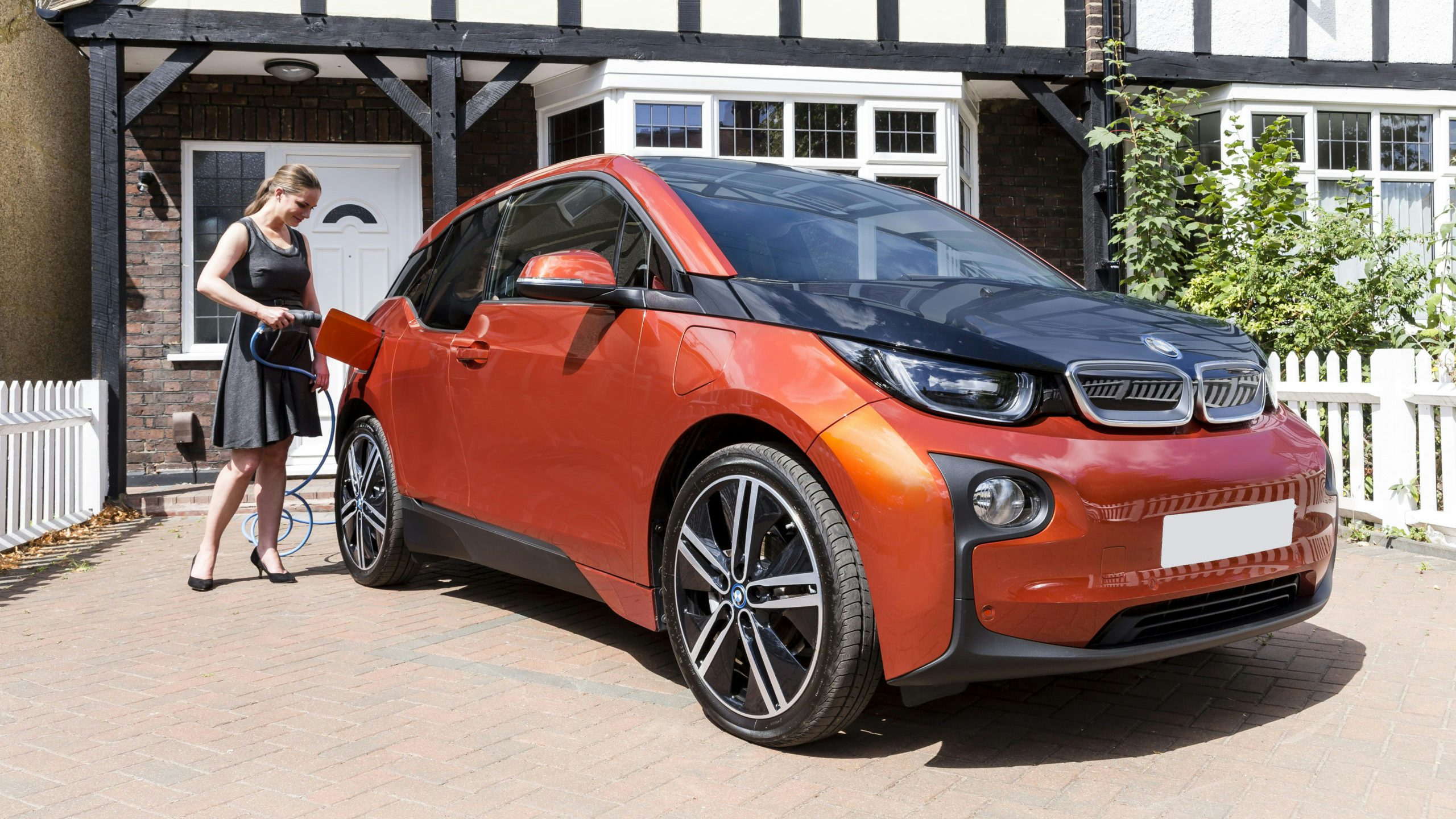How long does it take to charge an electric car?
October 25, 2021 by Nick Lette van Oostvoorne

What affects charging time of an electric car?
Charging times vary between makes, models and types of charger. As a rule of thumb, the larger the car’s battery, the longer it will take to fully charge – much like how a large laptop battery will often take longer to charge than your mobile phone’s battery.
However, there’s more to it than that. You can charge an electric car using a variety of charger types, from a three-pin plug at home to a dedicated public fast charger – the sort you’ll see popping up in car parks and motorway service stations.
These chargers are given a kW (kilowatt) rating. Put simply, the higher the kW rating, the faster the charger is able to brim your electric car’s battery.
For example, if you connect an electric car with a 70kWh (kilowatt hour) battery to a 7kW (seven kilowatt) charger (one of the most common outputs for public charging points), it would take 10 hours to charge from flat to full. If you were to use a more powerful 14kW charger this time would be halved.
However, this figure assumes the battery is flat, which is unlikely to be the case. You also don’t need to charge your electric car to 100% full every time – simply unplug it and get back on the road when the battery is at a level you’re happy with — just like your mobile phone.
It’s also worth noting that at a certain point — typically beyond 80 per cent — your electric car will charge more slowly to help extend the battery life.
Charging at home (approx. 10-to-30+ miles of range per hour)

To most effectively charge your car at home, it’s worth installing a dedicated charging point, commonly known as a wallbox.
Typically, charging at home using a dedicated wallbox gives you anywhere between 10 and 30 miles of extra range per hour, but this varies depending on your local grid, type of wallbox and the model of electric car you have. For example, Tesla offers a 22kW home charger which is said to give a Model 3 40 miles of range per hour of charge.

Generally speaking, a dedicated wallbox will have you covered if you want to charge your electric car overnight and have it fully charged by the morning. It’s cheap, too – while petrol typically costs around £1.30 to £1.40 per litre, charging an electric car usually sets you back around 17p per kWh.
It’s worth noting you will have to pay to have a wallbox installed, although some manufacturers offer them for free when you buy a new electric car.
The government offers a scheme to help cover the costs of wallbox installation. Known as the Electric Vehicle Homecharge Scheme (EVHS), this grant can cover up to 75% of the cost of your charger covered, up to a maximum of £350.
It’s possible to charge your car up through a conventional three-pin plug socket as well, but the speed of charge will be greatly reduced.
Public charging points (approx. 20-to-80-mile range per hour)

Public electric car charging points are becoming more common by the day and can be found in a range of locations, including town centres, supermarkets, workplaces, service stations, just to name a few.
Some of the most common outputs for public charging points are 7kW outlets, which typically will give your car 20 to 30 miles of range per hour, while some outlets are rated at 22kW.
Charging an electric car through a public charger is likely to cost you, though. There will be some freely available outlets, typically at supermarkets, but others may require you to subscribe to a particular provider or use a pay-as-you-go method.
You might even be able to charge up at your workplace. If there isn’t already a dedicated charger, ask your employer about looking to install one — there’s a government grant called the Workplace Charging Scheme which can help cover the costs for businesses installing chargers.
For charging networks that offer subscription services, you can usually use their dedicated smartphone app to check current availability of a charger (so you aren’t left stranded if you turn up at a charger only to find it’s in use), and see how much it will cost you.
If you want to see public charging points local to you, check out this handy map.
Fast charging points (Full charge in around an hour)

If you find yourself running low on battery range halfway through a long drive, public fast-charging points are usually the quickest way to top up and are most commonly found in motorway service stations and public car parks. These chargers are usually rated at 50kWh (but can reach up to 150kW), so can charge most EVs from empty to 80% in less than an hour.
The speed of fast-charging technology will only increase over time, and will further ease any anxiety associated with charging an electric car. For example, if your vehicle supports it, its battery could be charged from flat to full in comfortably less than an hour.
It’s worth noting though that plug-in hybrid cars often do not support fast charging.
Tesla Superchargers (Full charge in around 40 minutes)

Tesla is one of the biggest and most famous car brands of all time – despite being one of the youngest.
Part of that success has been the dedicated Tesla Supercharger network, which can provide a full charge to its latest models in around 40 minutes. Most of Tesla’s superchargers in the UK are rated at 150kW, but it is currently working on rolling out one megawatt cabinets in the future, so expect things to get even faster.
Sadly though, you can’t yet use any other electric vehicles on Tesla’s Supercharger network yet, although it’s possible Tesla will allow other manufacturers to use its Superchargers in the future.
Got more questions about electric cars? Take a look at these frequently asked questions:
How far can an electric car go?
How much does it cost to charge an electric car?
Find your nearest electric car charging point